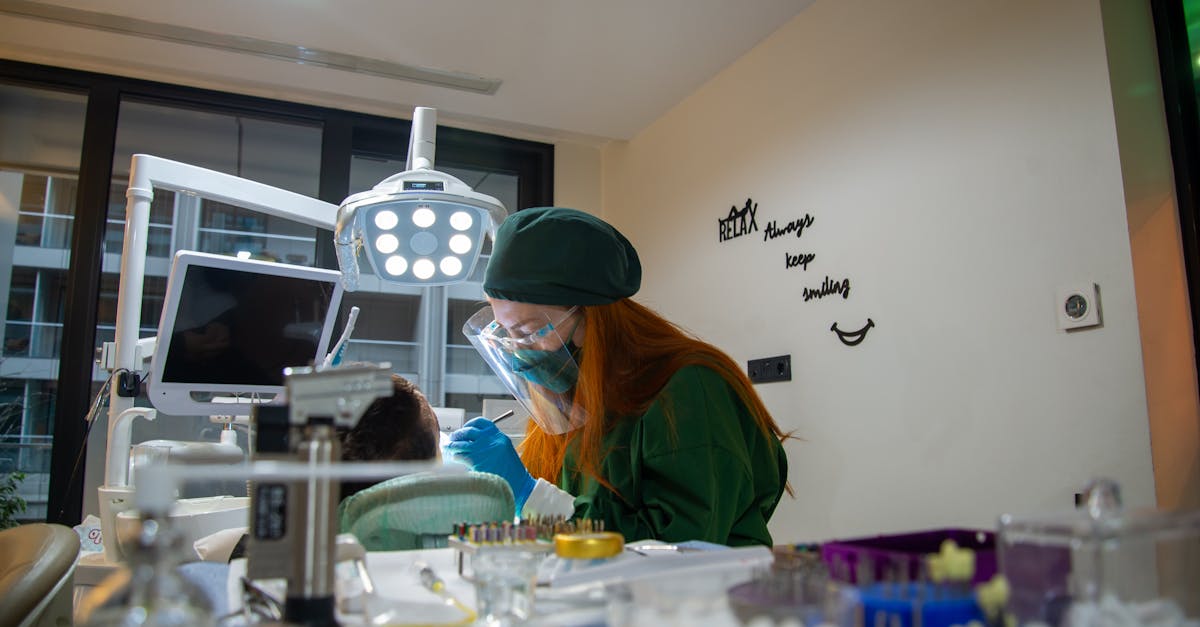
Integrating Medication Assisted Treatment into Therapy
When integrating Medication-Assisted Treatment (MAT) into therapy, it is crucial for healthcare providers to connect the pharmacological aspects of treatment with the psychological and behavioural components effectively. By fostering this integration, patients receive comprehensive care that addresses both the physiological and emotional aspects of their recovery journey. This approach allows for a holistic treatment plan that accounts for the complexities of addiction and the individual needs of each patient.
Therapists and medical professionals working together to integrate MAT into therapy must collaborate closely to ensure that the treatment is tailored to suit the specific needs of the individual. By maintaining open communication and sharing insights about the patient's progress, both the medication and therapy components can be adjusted as necessary to optimise the overall treatment plan. This collaborative effort aims to provide a cohesive approach that maximises the benefits of both medication and therapy, ultimately supporting patients in achieving lasting recovery and improved well-being.
Enhancing the Effectiveness of Counselling
Counselling plays a crucial role in supporting individuals undergoing Medication-Assisted Treatment. The collaborative efforts of healthcare professionals, including counsellors, aim to enhance the overall effectiveness of treatment interventions for substance use disorders. During counselling sessions, individuals have the opportunity to explore their thoughts, feelings, and behaviours related to their substance use, which can provide valuable insights into their recovery journey. Additionally, counselling helps individuals build coping skills, resilience, and self-awareness, which are essential elements in maintaining their recovery and overall well-being in the long term.
Furthermore, the integration of counselling in Medication-Assisted Treatment programs serves to address the holistic needs of individuals struggling with substance use disorders. By combining evidence-based medications with targeted counselling interventions, individuals can work towards better understanding the underlying factors contributing to their substance use. Through this collaborative approach, individuals gain the necessary tools to manage cravings, navigate triggers, and develop healthy coping mechanisms. Ultimately, counselling serves as a supportive framework that empowers individuals to make positive changes and achieve sustained recovery outcomes in their journey towards wellness.
Monitoring Progress and Adjusting Treatment Plans
Monitoring progress and adjusting treatment plans are integral aspects of providing effective medication-assisted treatment to individuals struggling with substance use disorders. Regular check-ins and evaluations serve as crucial tools for healthcare providers to assess the patient's response to the medication and identify any necessary modifications to the treatment plan. By closely monitoring a patient's progress over time, healthcare providers can tailor the medication-assisted treatment to suit the individual's specific needs, ultimately enhancing the likelihood of successful outcomes.
In the context of medication-assisted treatment, adjusting treatment plans is not a sign of failure but rather a proactive approach to address the evolving needs of the patient. Through ongoing evaluation and discussions with the patient, healthcare providers can collaboratively make adjustments to the treatment plan as needed, such as changing the dosage of medication or incorporating additional counselling support. Adapting the treatment plan based on the patient's progress and feedback is essential for optimising the effectiveness of medication-assisted treatment and supporting long-term recovery goals.
Importance of Regular Checkins and Evaluation
Regular check-ins and evaluations play a crucial role in the success of Medication-Assisted Treatment for substance use disorders. By maintaining open communication with healthcare providers and treatment teams, individuals undergoing therapy can receive the necessary support and adjustments to their treatment plans. These check-ins allow for monitoring of progress, identification of any challenges or setbacks, and the opportunity to address concerns promptly.
Consistent evaluations also enable healthcare professionals to assess the effectiveness of the current treatment approach and make any necessary modifications. This proactive approach ensures that individuals receive tailored care that aligns with their evolving needs and responses to Medication-Assisted Treatment. Regular check-ins serve as a valuable opportunity to reinforce positive behaviours, address potential relapse triggers, and provide ongoing encouragement throughout the recovery journey.
Addressing Stigma and Misconceptions about Medication Assisted Treatment
Addressing stigma and misconceptions about Medication-Assisted Treatment is a crucial step towards ensuring individuals receive the support they need in their journey towards recovery. Unfortunately, there are common misunderstandings surrounding the use of medications in addiction treatment, leading to negative perceptions and reluctance to consider this approach. It is essential to educate both the public and healthcare professionals about the benefits and effectiveness of Medication-Assisted Treatment in managing substance use disorders.
By promoting accurate information and dispelling myths, we can create a more supportive environment for individuals seeking treatment. Emphasising the evidence-based nature of Medication-Assisted Treatment and highlighting its role in addressing the neurobiological aspects of addiction can help shift attitudes towards a more understanding and accepting stance. Overcoming stigma and misconceptions is a collaborative effort that involves providing education, fostering open discussions, and encouraging a compassionate approach towards those choosing Medication-Assisted Treatment as part of their recovery journey.
Promoting Understanding and Acceptance
Promoting understanding and acceptance of Medication-Assisted Treatment (MAT) is crucial in combating the pervasive stigma and misconceptions surrounding this form of therapy. By educating individuals about the science behind MAT and its role in treating substance use disorders, we can dismantle the myths that often hinder individuals from seeking this effective treatment modality. It is imperative to highlight that MAT is not a substitute for traditional therapy, but rather an innovative approach that combines medication with counselling and behavioural therapies to address the complexities of addiction.
Dispelling myths and misconceptions about MAT requires open dialogue and a shift in societal perceptions. Through community outreach programs, public education campaigns, and conversations with healthcare professionals, we can encourage a more nuanced understanding of how MAT can significantly improve recovery outcomes for individuals struggling with substance use disorders. By fostering a culture of acceptance and support for Medication-Assisted Treatment, we can empower individuals to make informed decisions about their treatment journey and break free from the shackles of addiction.
FAQS
What is medication assisted treatment (MAT)?
Medication assisted treatment (MAT) involves the use of medications, in combination with counseling and behavioral therapies, to provide a comprehensive approach to the treatment of substance use disorders.
How does integrating MAT into therapy enhance treatment outcomes?
Integrating MAT into therapy can enhance treatment outcomes by addressing the physical aspects of addiction through medication while also addressing the psychological and behavioral aspects through therapy.
Why is it important to monitor progress and adjust treatment plans during MAT?
Monitoring progress and adjusting treatment plans during MAT is crucial to ensure that the individual is responding well to the medication and therapy, and to make any necessary changes to optimize treatment outcomes.
How can regular check-ins and evaluations contribute to the success of MAT?
Regular check-ins and evaluations allow healthcare providers to assess the individual's progress, identify any challenges or barriers to treatment, and make adjustments as needed to ensure the effectiveness of MAT.
How can addressing stigma and misconceptions about MAT promote acceptance and understanding?
Addressing stigma and misconceptions about MAT can help reduce barriers to treatment, increase acceptance of MAT as a valid treatment modality, and promote a better understanding of how it can benefit individuals struggling with substance use disorders.
